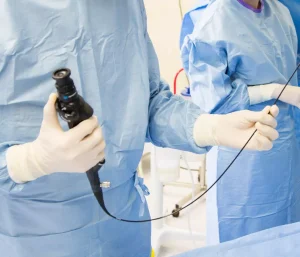In the realm of modern medicine, the advent of laparoscopic surgery has revolutionized the way surgical procedures are performed. Laparoscopes, with their advanced technology and precision, have become indispensable tools in the hands of surgeons, offering numerous benefits over traditional open surgery.
Enhanced Visualization and Precision
One of the primary advantages of laparoscopes is their ability to provide enhanced visualization of the surgical area. Equipped with high-definition cameras and powerful light sources, laparoscopes allow surgeons to see intricate details with remarkable clarity. This improved visualization enables surgeons to perform delicate procedures with greater precision, reducing the risk of complications and improving patient outcomes.

Minimally Invasive Approach
Laparoscopic surgery is often referred to as minimally invasive surgery due to the small incisions required. Unlike traditional open surgery, which involves large incisions, laparoscopic procedures typically require only a few small incisions through which the laparoscope and surgical instruments are inserted. This minimally invasive approach offers several benefits, including reduced postoperative pain, shorter hospital stays, and faster recovery times for patients.
Reduced Scarring and Improved Cosmetic Outcomes
The smaller incisions used in laparoscopic surgery result in significantly reduced scarring compared to traditional open surgery. This is particularly important for patients concerned about the cosmetic outcomes of their procedures. The minimal scarring associated with laparoscopic surgery not only enhances the patient’s appearance but also contributes to a quicker and more comfortable recovery process.
Versatility in Surgical Applications
Laparoscopes are versatile tools that can be used in a wide range of surgical procedures. From general surgeries such as appendectomies and cholecystectomies to specialized procedures in gynecology, urology, and oncology, laparoscopic techniques have proven to be effective in various medical fields. The ability to perform complex surgeries with minimal invasiveness has expanded the scope of laparoscopic applications, benefiting countless patients worldwide.
Improved Patient Outcomes
The use of laparoscopes in modern surgical procedures has been associated with improved patient outcomes. The reduced trauma to the body, shorter recovery times, and lower risk of complications contribute to better overall patient experiences. Additionally, the precision and accuracy of laparoscopic techniques result in more successful surgeries, leading to higher patient satisfaction and improved long-term health outcomes.
Conclusion
Laparoscopes have undoubtedly played a pivotal role in advancing modern surgical procedures. Their ability to provide enhanced visualization, precision, and minimally invasive approaches has transformed the field of surgery, offering numerous benefits to both patients and surgeons. As technology continues to evolve, the role of laparoscopes in surgical practice is expected to expand further, paving the way for even more innovative and effective medical treatments.
